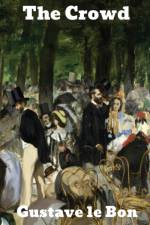av James Allen
181
To maintain an unchangeable sweetness of disposition, to think only thoughts that are pure and gentle, and to be happy under all circumstances,- such blessed conditions and such beauty of character and life should be the aim of all, and particularly so of those who wish to lessen the misery of the world. If anyone has failed to lift himself above ungentleness, impurity, and unhappiness, he is greatly deluded if he imagines he can make the world happier by the propagation of any theory or theology. He who is daily living in harshness, impurity, or unhappiness is day by day adding to the sum of the world's misery; whereas he who continually lives in goodwill, and does not depart from happiness, is day by day increasing the sum of the world's happiness, and this independently of any religious beliefs which these may or may not hold. He who has not learned how to be gentle, or giving, loving and happy, has learned very little, great though his book-learning and profound his acquaintance which the letter of Scripture may be, for it is in the process of becoming gentle, pure, and happy that the deep, real and enduring lessons of life are learned. Unbroken sweetness of conduct in the face of all outward antagonism is the infallible indication of a self-conquered soul, the witness of wisdom, and the proof of the possession of Truth.A sweet and happy soul is the ripened fruit of experience and wisdom, and it sheds abroad the invisible yet powerful aroma of its influence, gladdening the hearts of others, and purifying the world. And all who will, and who have not yet commenced, may begin this day, if they will so resolve, to live sweetly and happily, as becomes the dignity of a true manhood or womanhood. Do not say that your surroundings are against you. A man's surroundings are never against him; they are there to aid him, and all those outward occurrences over which you lose sweetness and peace of mind are the very conditions necessary to your development, and it is only by meeting and overcoming them that you can learn, and grow, and ripen. The fault is in yourself.






























